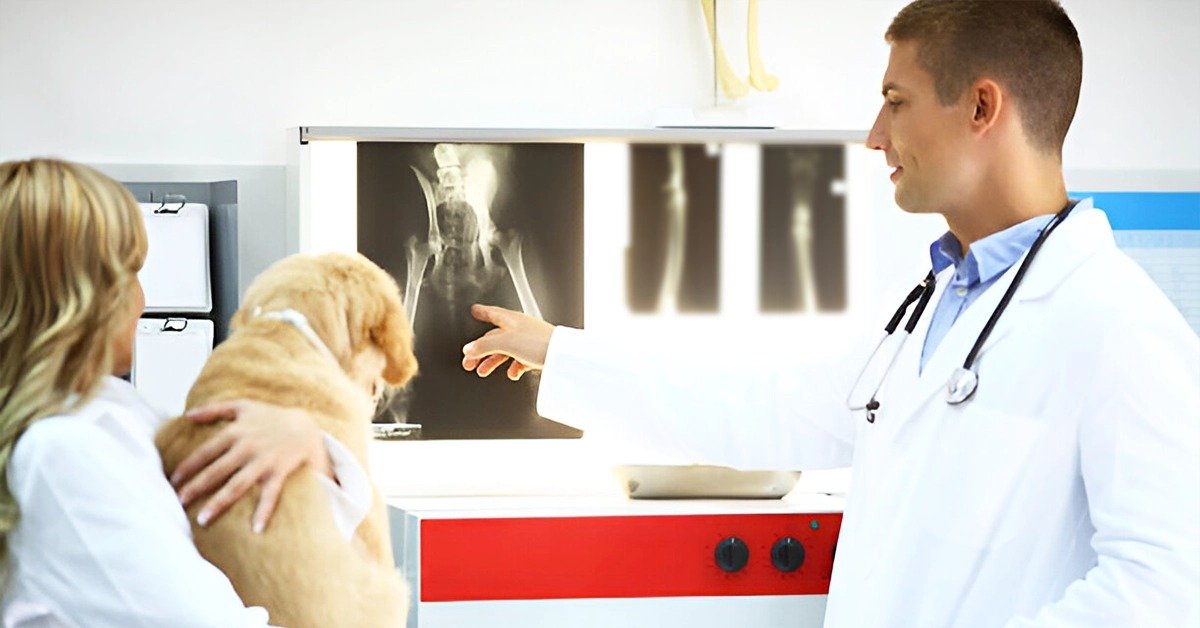What are Rickets in dogs, symptoms, treatment, and preventions
If you are a pet parent then you must be conscious about the health and balanced diet of your puppies. There are several types of responsibilities for the pet parents and one of the primary duties is to take care of their health. If you are watching your puppy full of energy you just become happy. But what if there are changes occur in their activities?
If your pet starts limping or showing discomfort signs this can be a sign of rickets. Rickets is a disease that weakens bones and affects dogs badly. What rickets is? Is it contagious? What are the symptoms and how to prevent your dogs from rickets? In this blog, we are going to talk about this disease in detail. So read to ensure the good health of your puppy. Rickets is a disease caused by nutritional deficiencies which can lead to bone deformities, stunted growth, and pain, robbing your dog of the carefree life they deserve. The good news? With the right care and attention, rickets can be prevented and treated, ensuring your puppy grows up strong and healthy. Let’s explore what you need to know to protect your dog from rickets.
What are Rickets in dogs?
Rickets is a bone disease that affects dogs, particularly puppies. The main cause of this disease is the deficiency of calcium, phosphorus, or vitamin D in their diet. This condition leads to weak, soft, and deformed bones, causing pain and discomfort in growing dogs. While rickets are relatively rare in modern pet care, dog owners must recognize the signs, understand the causes, and know how to prevent and treat this disease. The affected puppies feel pain in their bones and can even fracture their legs. The disease is treatable just with a balanced diet plan full of minerals and vitamins. But if the pet parents do pay ahead towards it this can lead to irreversible damage to a puppy’s bones. Although rickets have been a rare disease now still owners should be aware all bout it to ensure the good health of their dogs.
Main causes of rickets in dogs?
Rickets in dogs generally occur due to a lack of phosphorus, vitamin D, and other essential vitamins and calcium.
Calcium: Essential for the development and maintenance of strong bones.
Phosphorus: Works closely with calcium to form bone tissue.
Vitamin D: Best for absorption of calcium and phosphorus in the body.
f the diet of your dog is not proper and balanced then this can affect the growing puppy. The main source of nutrients for dogs is just food, and rickets occur when the diet is not full of vitamins or minerals. Less sunlight exposure which naturally provides vitamin D, can also be a reason for rickets in dogs. Rapid growth demands good food and diet to develop the bones and joints.
Signs and Symptoms of Rickets in Dogs
The symptoms of rickets can vary, but the most common signs of this disease include:
- Bone Deformities: In this case bowed legs, swollen joints, and an abnormal gait are common.
- Weakness and Pain: Difficulty walking, reluctance to move, and signs of discomfort when handled.
- Delayed Growth: Puppies may experience stunted growth or fail to gain weight.
- Poor Posture: An abnormal sitting/lying position.
- Fractures: In severe cases, bones may break easily due to their weakened state.
Diagnosing Rickets in Dogs
If you have an idea and see the relatable symptoms that your puppy has rickets, it’s crucial to visit a veterinarian for a thorough examination. The vet may perform:
- X-rays: To check for bone deformities and density loss.
- Blood Tests: To assess calcium, phosphorus, and vitamin D levels.
Early diagnosis is essential for successful treatment and to prevent long-term complications.
Prevention of Rickets in Dogs
Preventing rickets is all about ensuring that your dog receives a well-balanced diet, especially during the critical growth stages. Here are some key prevention tips:
- Feed a Balanced Diet: Commercial dog foods are formulated to meet the dietary needs of growing puppies. If feeding homemade meals, consult a veterinarian to ensure proper supplementation of calcium, phosphorus, and vitamin D.
- Sunlight: Vitamin D can be obtained from the exposure to sunlight. Regular outdoor playtime is essential for your dog’s bone health.
- Proper Supplementation: Include appropriate supplements in your dog’s diet if the doctor suggests it.
- Routine Veterinary Check-ups: Regular check-ups can help catch any early signs of nutritional deficiencies before they lead to bone problems.
Treatment of Rickets in Dogs
Rickets are treatable, especially when diagnosed early. Treatment usually involves:
- Nutritional Support: A proper diet includes the right balance of calcium, phosphorus, and vitamin D. Commercial puppy food is often recommended for its balanced nutritional content.
- Supplementation: In some cases, vets may prescribe calcium or vitamin D supplements.
- Physical Therapy: To improve muscle strength and coordination in dogs affected by bone weakness.
- Surgery: In severe cases with bone deformities, corrective surgery may be necessary to repair and realign bones.
Preventing rickets in dog
Rickets can be prevented just by doing some essential things. Good care is necessary otherwise it can affect the overall well-being of the puppy. Good dog foods that contain a healthy amount of vitamins and minerals, like calcium should be given to dogs to prevent rickets. Homemade diets with a good amount of proteins with proteins, calcium, and vitamins are essential for the balanced and healthy life of the dog.
FAQs:
Can a dog recover from rickets?
Yes, the dog can perfectly get back to their normal life after proper concentration on their food diet plan. All they need is good care, medical check-ups, and prevention. Rickets is preventable.
Is rickets genetic in dogs?
Rickets is a disorder of bone development and can be the result of either dietary or genetic causes.
How do animals get rickets?
Rickets is a disease of growing bones. It usually is seen in young, weaned, growing pigs in which calcium is deficient, phosphorous, or vitamin D. Rickets is usually caused by a dietary deficiency or vitamin D or phosphorus.



